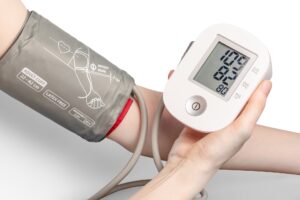Relationships are complicated. We often make sacrifices for the people we care about. In fact, you might tell yourself it’s part of making things work. But keep a close eye out. If you have to continually sacrifice for someone in your life or you expect them to make regular sacrifices for you, you could be in a codependent relationship.
These relationships exist with a serious power imbalance. And over time, it can take a major toll on both parties.
With that in mind, let’s take a closer look at codependent relationships, how to spot one, and what to do if you think you might be codependent.
Understanding codependency
A healthy relationship means that both parties respect and care for one another. There’s a give-and-take and generally, it’s healthy to strive for balance.
Codependent relationships look different. In these relationships, one person — the dependent — excessively prioritizes another person — the codependent. Historically, codependence was used to describe someone in a close relationship with someone living with addiction. In trying to navigate that person’s dependence on their addiction, the other individual became codependent.
Today, though, mental health professionals use codependence to describe relationship dynamics where one individual excessively relies on the emotional and physical support of another. Codependence can occur in romantic, parent-child, friend, or even coworker relationships. Oftentimes, it’s characterized by an unproductive pattern of enabling and controlling behaviors — motivated by a deep fear of abandonment, low self-esteem, and a need for approval and validation.
In them, the codependent often expects the dependent to meet their needs and prioritize their desires, so much so that it distorts their view of a healthy relationship. On the other side, the dependent spends so much time and energy prioritizing their partner’s needs that they lose sight of their own identity.
Spotting codependent relationships
When you’re in it, it can be hard to see codependency. But try to zoom out. Here are a few signs you should be looking for.
You might be a codependent if:
- You know you could do anything and your partner would still be there for you
- You often blame your partner when things go wrong
- You expect your partner to meet your needs, often before you even ask
- You believe you can win every argument
- Your partner always defers to your preferences
If you’re living with addiction, carefully examine your relationship. You’re more likely to end up in a codependent role if someone is trying to support you through dependence on a substance.
Signs you might be a dependent include:
- Feeling like you need to fix, save, or protect your partner
- The desire to make drastic sacrifices for your partner
- Difficulty tearing yourself away from your partner for self-care
- Flaking on other people in your life to be there for the codependent
- Feeling like it’s almost impossible to set boundaries with your partner
- Neglecting your own wants and needs to prioritize your partner’s
- Strong fear of abandonment
Those who experience codependency often have a strong desire to be needed and take care of others.
What to do if you’re in a codependent relationship
To a large extent, that depends on where you’re currently at. If this is a relationship you want to save, it is possible. But it will take work from both you and the other person. As a result, it’s important that both of you understand that you’re in a codependent relationship. The first step is gaining awareness.
It can be challenging to reach that place. You don’t have to get there on your own. Starting therapy by yourself can give you tools and language to use to start broaching this topic. Eventually, the goal is to get both you and the other person into therapy together so you can start to restructure your power dynamic and find a healthy balance in your relationship. Holistic couples therapy can help you stay the course as you move forward together.
If you want to leave your codependent relationship, therapy can help there, too. Meeting with a therapist can help you develop a plan to get out and take care of yourself before, during, and after that transition.
For help navigating codependence in Ventura County, contact us at the Ventura Counseling & Wellness Center. For support in the Los Angeles area, reach out to us at the West Valley Counseling Center.





